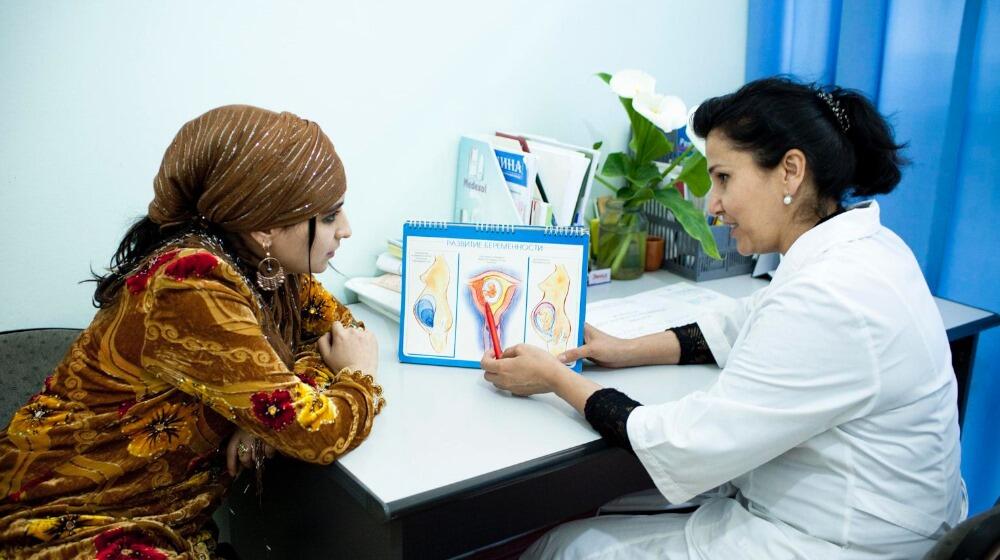Following up on a commitment made at the Nairobi Summit in 2019, the Government of Tajikistan in August announced the renewal of its reproductive health programme for a four-year period ending in 2027.
The US$4.1 million programme is aimed at enhancing the accessibility, quality, and efficiency of reproductive health and family planning services, with a focus on the most vulnerable citizens, who make up over 75 per cent of the population and mostly live in rural areas.
The Government has allocated some US$740,000 for the programme from the state budget, with the remainder expected to come from state partners, the private sector and other sources.
“Investing in sexual and reproductive health and family planning is one of the most cost-effective strategies for sustainable development,” said Dr. Zulfiya Abdusamatzoda, Deputy Minister of Health and Social Protection of Tajikistan. “People can plan their families with quality sexual and reproductive health information and services based on their values and personal circumstances.”
Although the contraceptive prevalence rate increased from 19.5 per cent in 1995 to 29 per cent in 2017, according to official statistics, this remains the lowest rate in Central Asia.
The programme will be implemented by the Ministry of Health and Social Protection with support from UNFPA and other partners.





